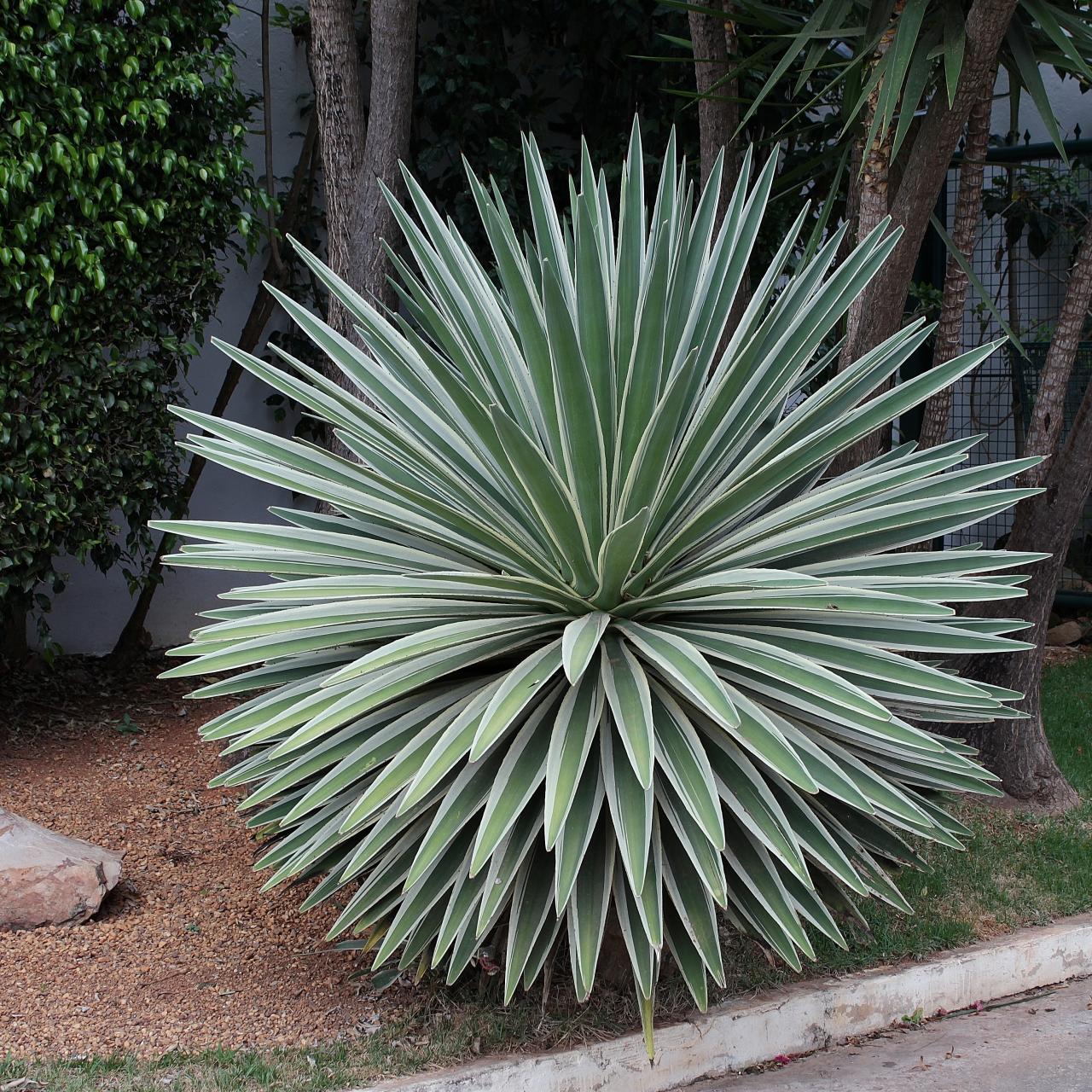
Agave Angustifolia Marginata 15 seeds, Hardy Variegated Cactus Succule The Plant Attraction
Commonly Grown Agaves in Gardens When choosing different types of agave for the landscape, first, you'll want to consider their texture and carefully place varieties with sharp spines and spikes away from high traffic areas. You'll also want to consider the size agave you can accommodate. Many agave plants get very large.
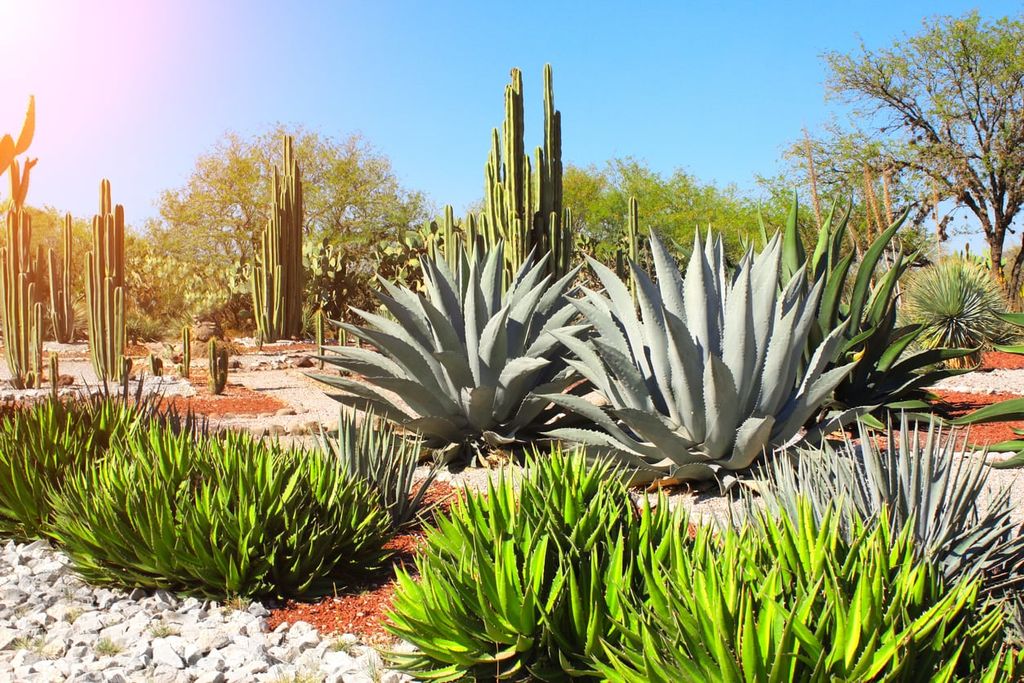
Agave Plant Varieties Learn About Types Of Agave For The Garden
Most Beautiful Agave Varieties. 1. Black Spined Agave. Botanical Name: Agave macroacantha. Height & Spread in a Pot: 10-16 inches. Sun Exposure: Full sun to dappled shade. This stunning, easy to care agave showcases a rosette of fleshy and narrow, powder blue leaves with maroon tips. 2. Century Plant.
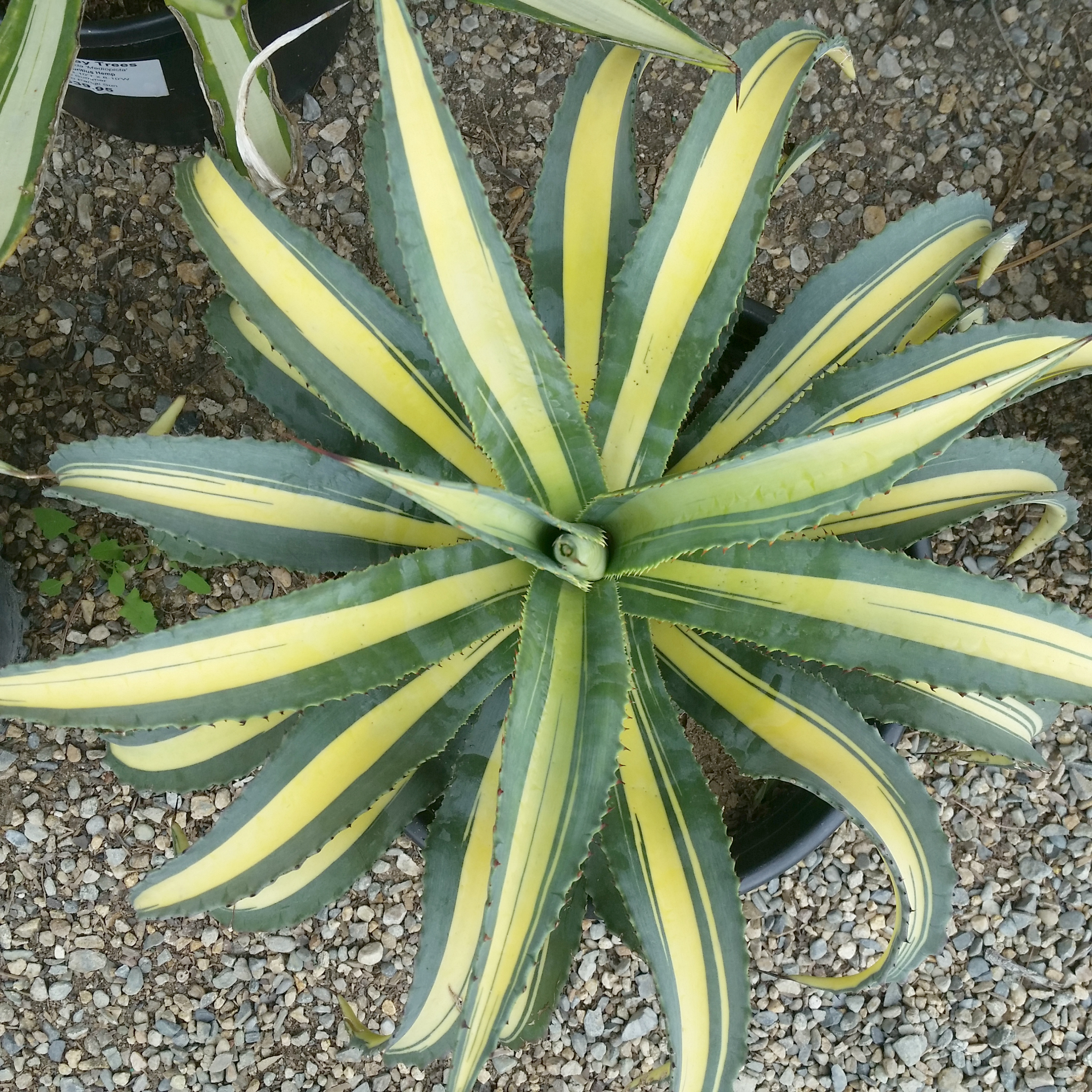
Agave americana var. mediopicta Variegated Century Plant Mid Valley Trees
2 of 17 Richard Shiell Octopus agave A. vilmoriniana Fleshy, outward-twisting leaves on this agave resemble tentacles, hence its common name, octopus agave. Pale green rosettes on this giant beauty can reach up to 6 feet wide. There are no teeth to worry about; just one terminal spine.
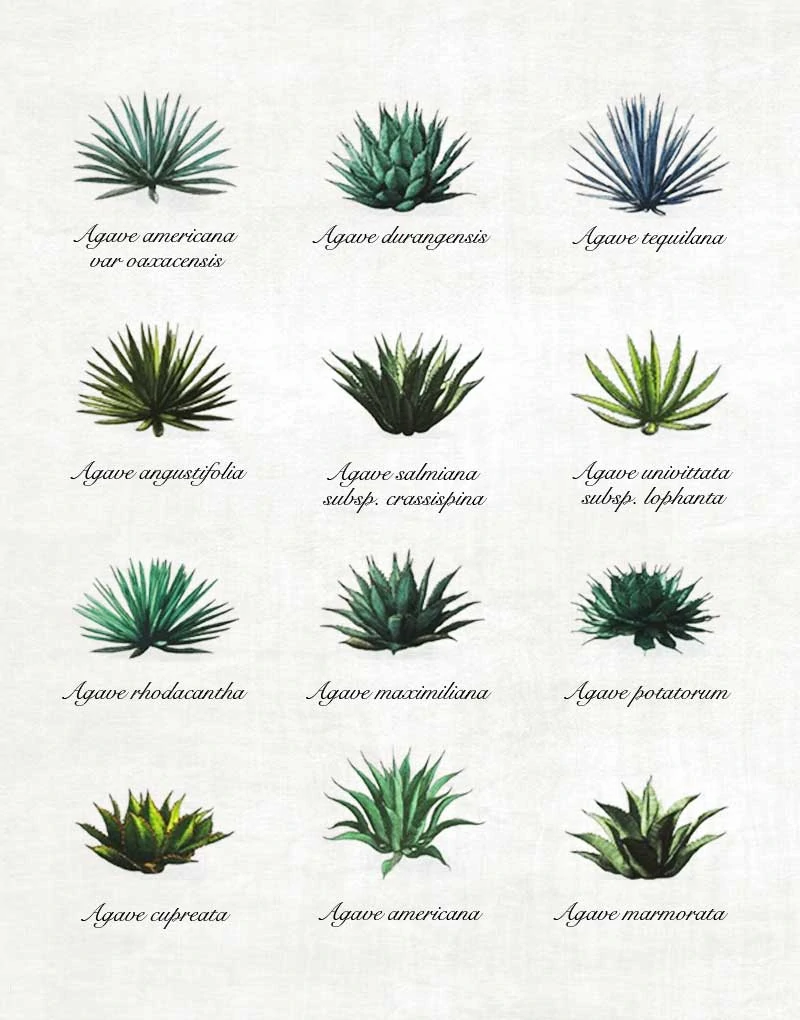
The 12 types of agave and what each brings to the mezcal
Narrow-leaved Agave (Agave angustifolia) - Unlike other agave plants, this agave is native to the humid, tropical regions of the Americas and has long, narrow leaves that form an attractive rosette. Fox Tail Agave (Agave attenuata) - Unlike many other agave species, this agave plant lacks sharp spines on its leaves. It has smooth, fleshy.

Agaves Richard Lyons Nursery, Inc.
12 Types of Agave Plants to Grow | Best Agave Varieties By Sherin Woods Last Updated: September 14, 2021 3 min read 2-Minute Read Learn about 12 Types of Agaves to grow these impressive architectural plants both in gardens and containers to improve the curb appeal of your home!
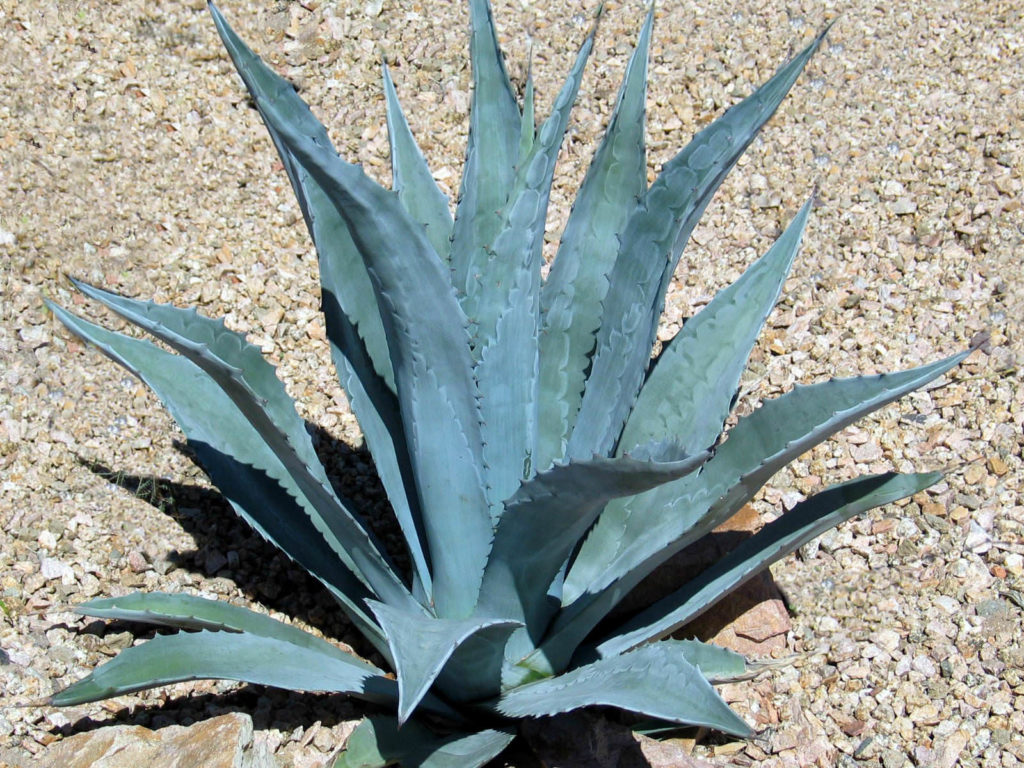
Agave americana (Century Plant) World of Succulents
Contents 1 Types of Agave Plants With Pictures and Names 2 About Agave Plants 3 Yucca vs Agave 4 How to Care for Agave Plants 4.1 Light 4.2 Watering 4.3 Soil 4.4 Fertilizing 4.5 Climate 4.6 Pests and Diseases 5 Propagating Agave Plants 5.1 Pups 5.2 Seeds Types of Agave Plants With Pictures and Names
Agave Century Plant Just Fruits and Exotics
Tequila Tequila is a spirit distilled from the heart (pina) of the Blue Agave plant, Agave Tequilana. While the mescal production process may vary slightly by region, the basic process begins with harvesting the pre-flowering agave plant. Tequila Agave in distillery waiting for processing, tequila factory Jalisco Mexico

Agaves Plant Care and Collection of Varieties
Table Of Contents Many Agave Plant Varieties Do All Different Types of Agave Plants Die After Blooming? How Tall Do Agave Plants Get? Popular Types and Varieties Of Agave Plants Agave Americana (Century Plant) Agave Victoriae-Reginae (Royal Agave) Agave Blue Glow Agave Filifera (Thread Leaf Agave) Agave Attenuata (Foxtail Agave) Agave Parviflora

Agave a. var mediopicta 'Alba' (White Variegated Century Plant)
Agave americana 'Cornelius' is a great smaller plant monstrose form of the original large version (left); Agave filifera 'Plain Jane' is another monstrose small version great for pots (right) . If one has the fortunate opportunity to see a large cactus/succulent show, one will probably see many of these wonderful smaller species, as these littler plants are much more practical to drag from.

Agaves Plant Care and Collection of Varieties
Zones: Generally agaves thrive in the warmer subtropical zones that experience seasonal dry periods (Zones 8 to 10). A few species native to the southwest United States and northern Mexico tolerate more extreme heat and cold; Agave parryi will tolerate minus 20 degrees F (Zone 5).

12 Types of Agave Plants to Grow Best Agave Varieties
Although agaves share intrinsic traits common to all succulents, such as dense fleshiness and swollen leaves, several other characteristics set them apart from other plants in their classification. All 270 recognized species of the agave are identified by the leathery leaves that swirl around a central core in a rosette formation.
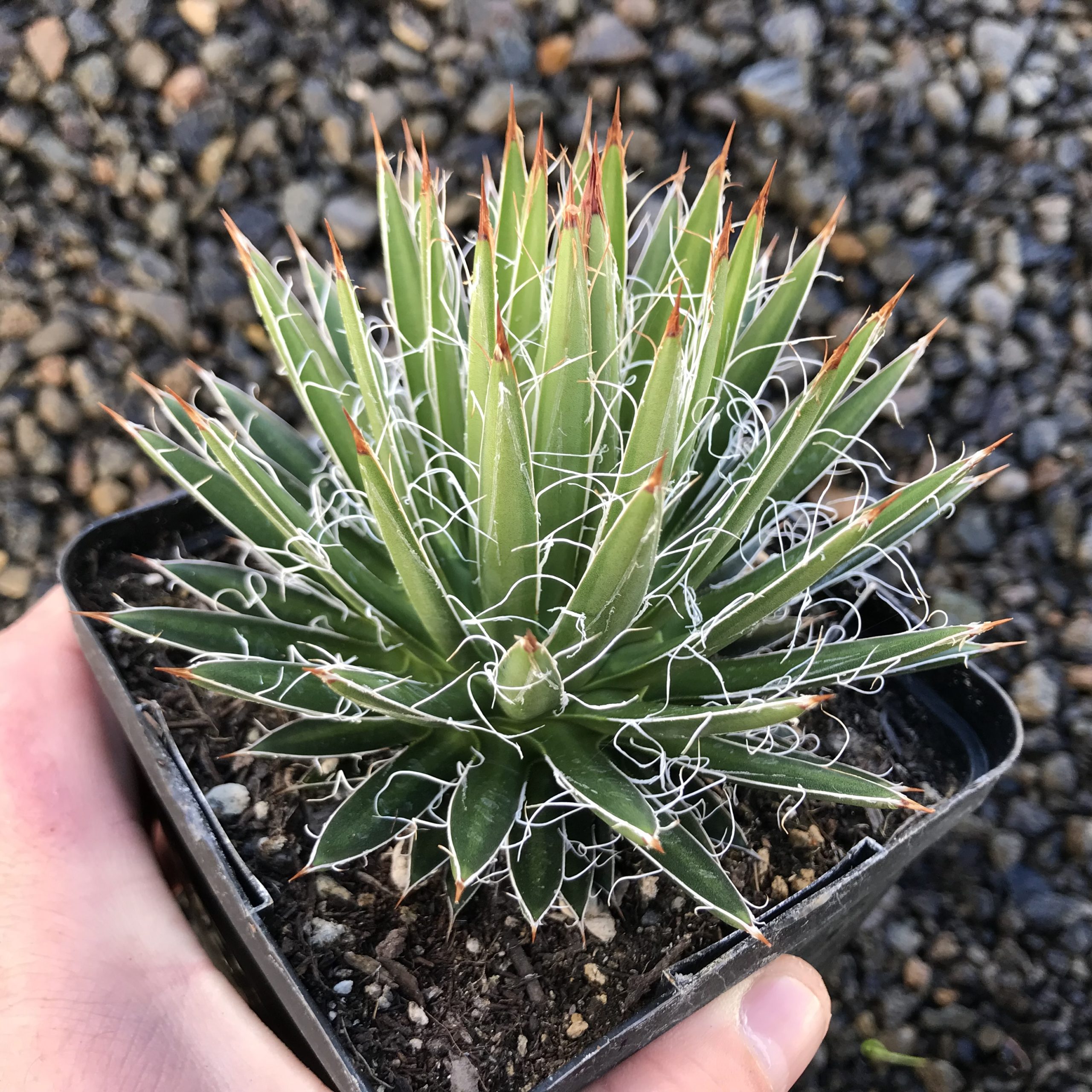
Agave multifilifera Chahuiqui Century Plant (4.5" Pot) Little Prince To Go
The twin flowered agave is a rare species found along the Mexican west coast. It is a slow-growing dwarf variety that grows about 2 feet tall and 3 feet wide. Its 'twin-flowered' name stems from the fact it grows its green-yellow flowers in pairs beside each other on spikes of about 8 to 12 inches tall. 9.

Agave attenuata cv. Kara's Stripes Agave plant, Agave attenuata, Cacti and succulents
10 Popular Species of Agave. Agave americana - a large and dramatic plant with blue-gray leaves and sharp spines that can grow up to 6 feet (1.8 meters) tall and 10 feet (3 meters) wide.. Agave attenuata - a medium to large-sized agave with soft, pliable leaves that lack spines or sharp teeth. It can grow up to 5 feet (1.5 meters) tall and produce a flower spike up to 10 feet in height.
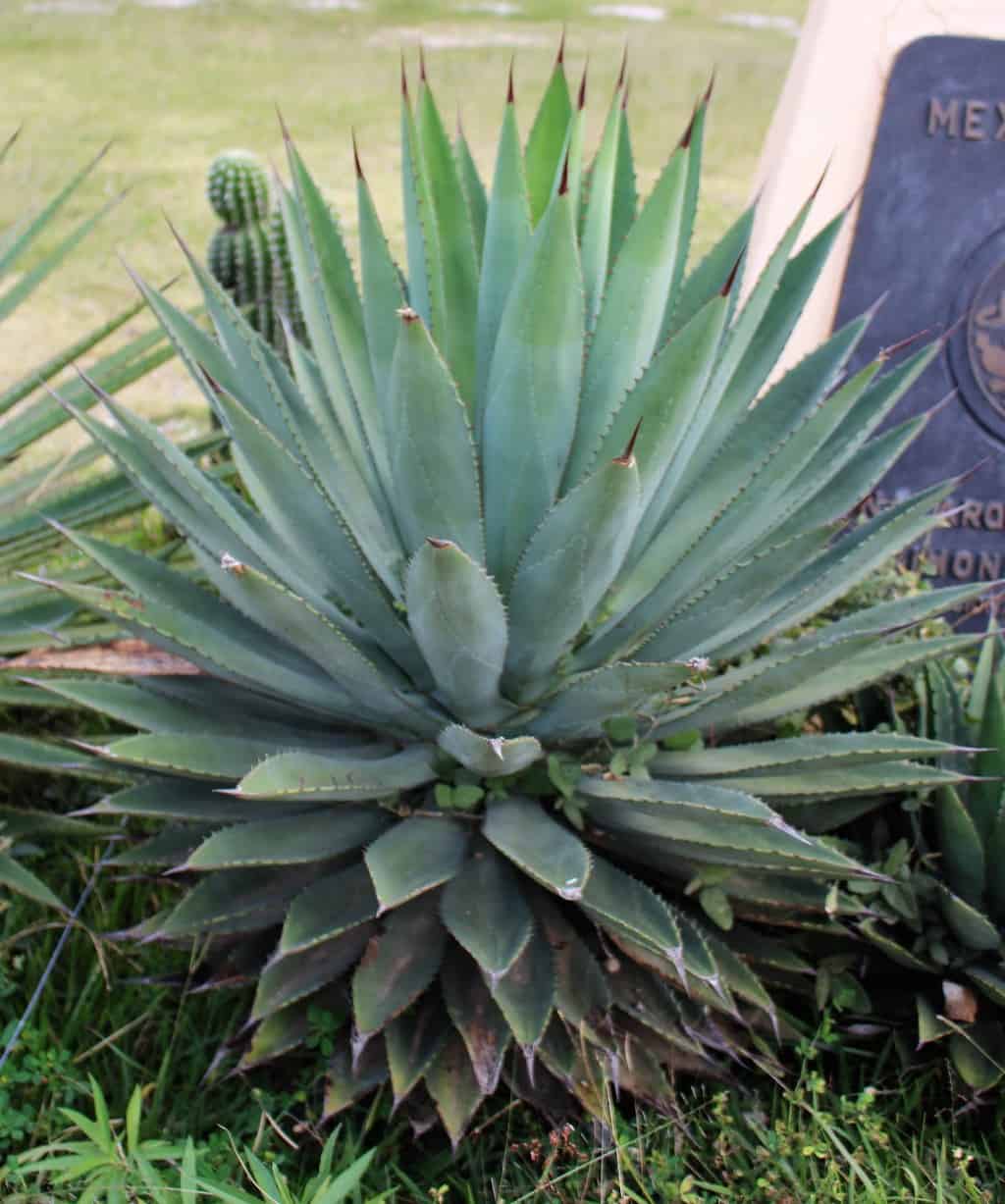
19 Types of Agave Plants With Pictures Yard Surfer
R S T U-V W-Z Formerly included References As of May 2019, the World Checklist of Selected Plant Families and Plants of the World Online recognize about 270 species of Agave plus a number of natural hybrids. This includes species formerly placed in Manfreda and Polianthes. [1] Other sources may use different circumscriptions.
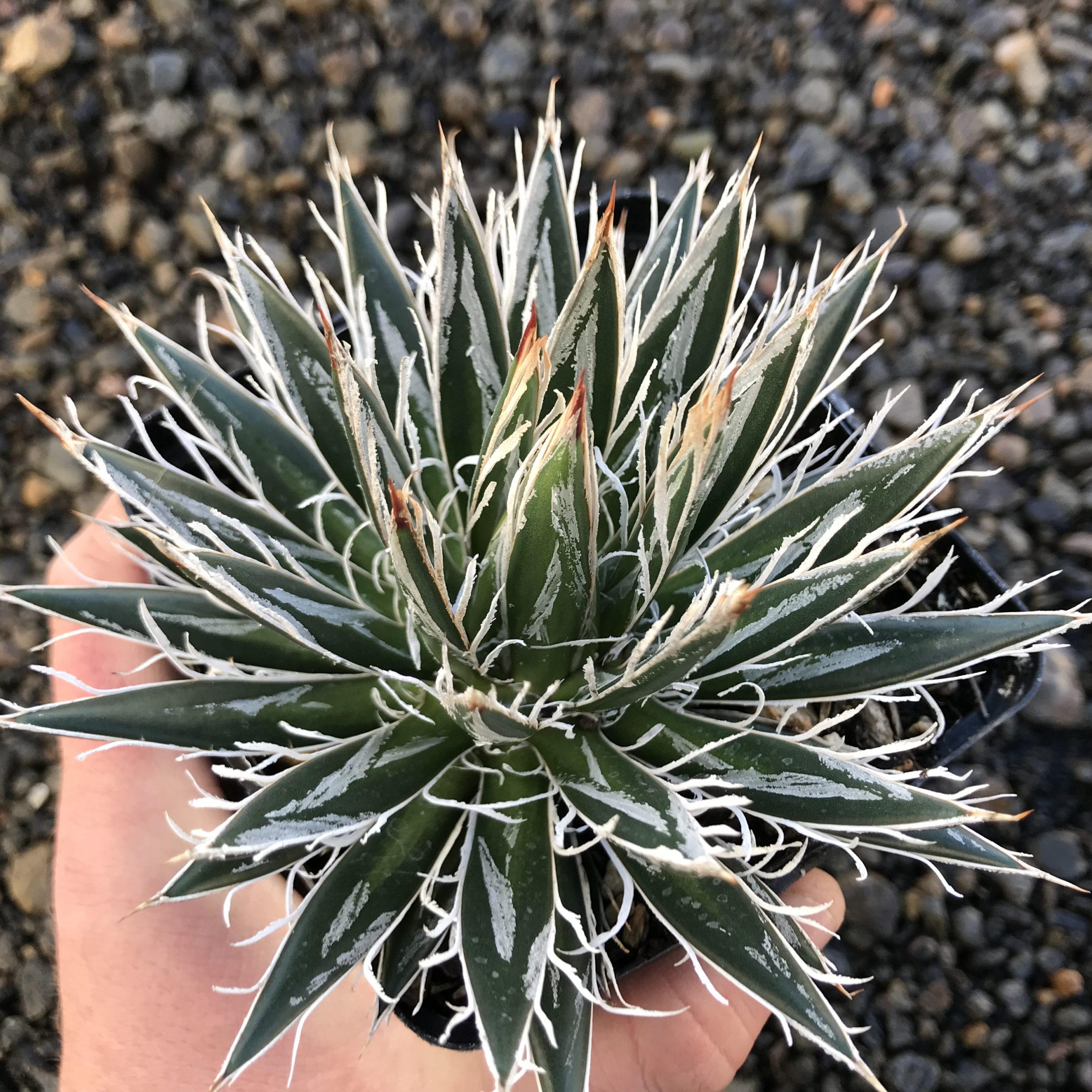
Agave schidigera Century Plant (4.5" Pot) Little Prince To Go
Agave plants have been given the common name "Century Plant" because of their blooming habit. The idea is that the plants live for 100 years, bloom and die. While it is true that Agave are monocarpic, meaning they bloom once and then die, few species, if any, take a full 100 years to do this.
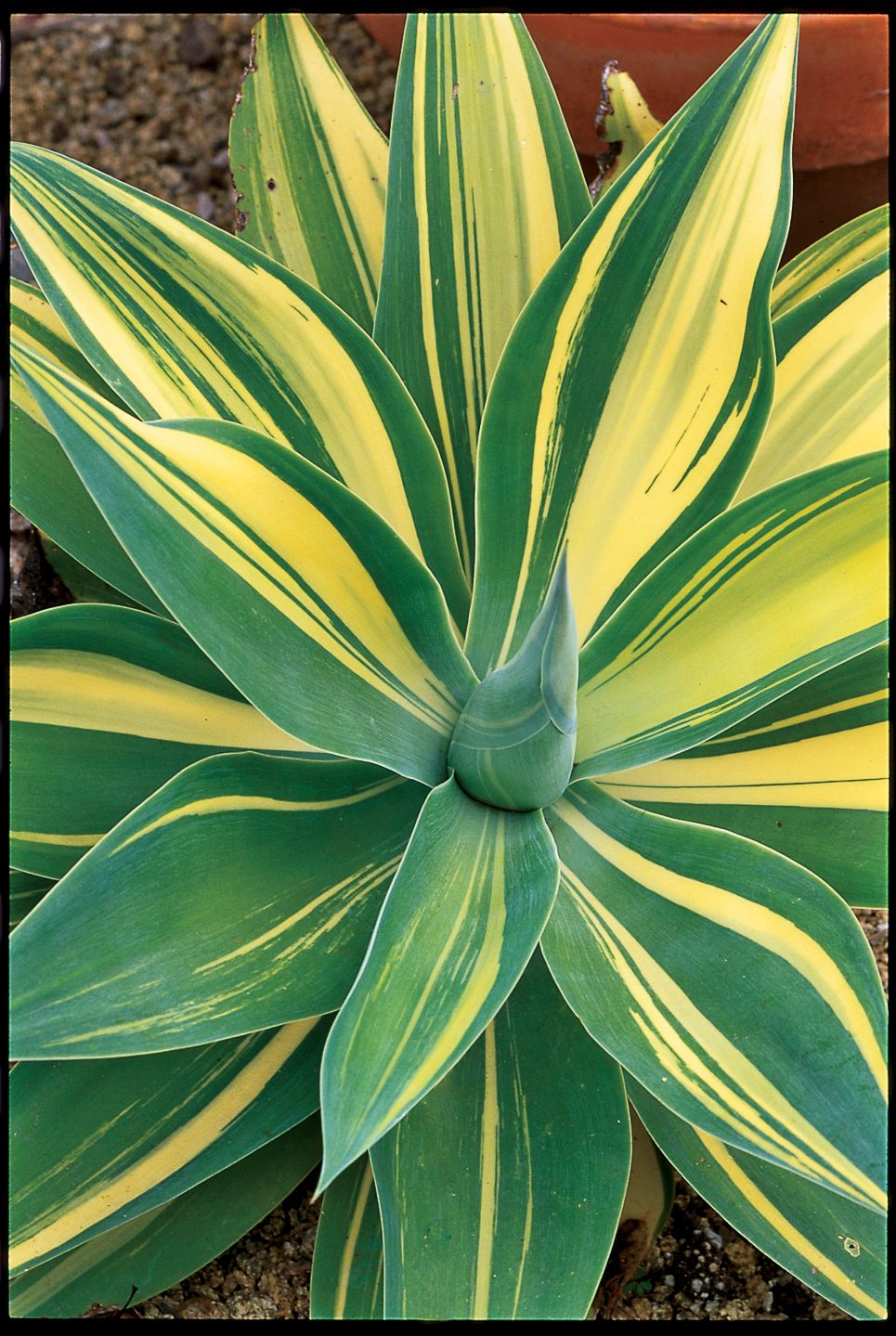
16 Agave Plants Sunset Sunset Magazine
Agaves can be confused with cacti, aloes, or stonecrops, but although these plants all share similar morphological adaptations to arid environments (e.g. succulence ), each group belongs to a different plant family and probably experienced convergent evolution. [9]